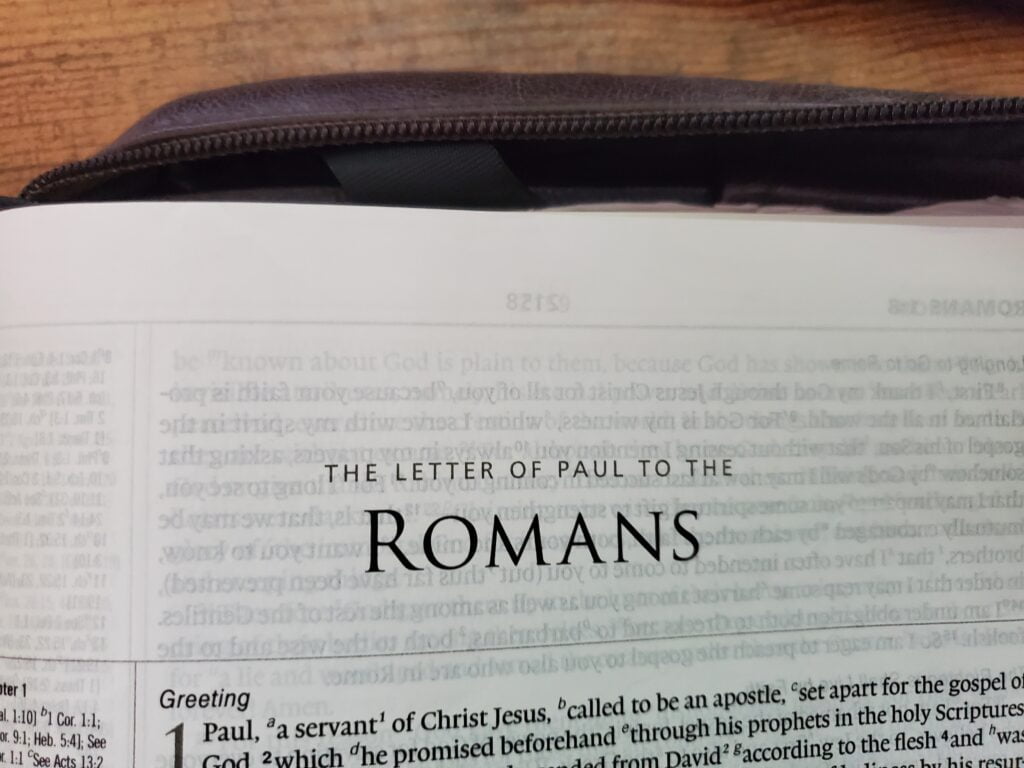⏱️ Estimated Reading Time: 4 min read
Romans 3:27-28, “27 Then what becomes of our boasting? It is excluded. By what kind of law? By a law of works? No, but by the law of faith. 28 For we hold that one is justified by faith apart from works of the law.”
In a human manner of speaking, God must overcome a significant hurdle to pardon His people. On the one hand, He is perfectly holy and “cannot look at wrong” (Hab. 1:13). He cannot tolerate sin in His presence, nor can He overlook evil and let it remain unpunished. The Lord cannot merely clear the guilty—He cannot simply wipe their slate clean (Ex. 34:6– 7). On the other hand, our Creator loves His people. He wants to forgive them so that they can enjoy Him forever (Ps. 23; Isa. 43:1–4). If God were to pass by sin in “love,” forgiving us without any payment for our sin, He would be divided against Himself, for His holy justice would go unsatisfied. He would be showing an indulgent love that makes no demands.
The glory of the atonement is that in it God shows His love without compromising His holy justice. When it seemed impossible for the Lord to be both just and the Justifier, His love found a way. Romans 3:25 says that He sent His Son as a propitiation—a hilastērion, which is the Greek word translated into English as “mercy seat.” The mercy seat was the cover of the ark of the covenant where the blood of the sacrificial goat was sprinkled each year on Israel’s Day of Atonement (Lev. 16). By referring to Jesus as our mercy seat, Paul ties Him to the Day of Atonement, the drama of which included both the goat whose blood signified that God’s just demands had been met when it was killed in place of the people as well as the scapegoat that took Israel’s sins out of the camp. As our propitiation, Jesus bore our sins on the cross, received the Lord’s wrath in our place, and His blood covers those who trust in Him; thus, God’s justice has been satisfied and our sins have been forgiven (Rom. 3:26).
Paul emphasizes Christ’s person and work as availing for our justification, and since our effort has no place in this, there is no room for boasting in our works (vv. 27–28). The law—principle—of faith means that we can never boast of having achieved a right status before the Lord by anything we have done. We cannot look at our works and find anything at all that merits in any way the favorable verdict of our Creator. Instead, we must turn to Christ alone. In his commentary on Romans, John Murray writes: “The specific quality of faith is extraspective and in that respect is the diametric opposite of works. Faith is self-renouncing; works are self-congratulatory. Faith looks to what God does; works have respect to what we are. It is the antithesis of this principle that enables the Apostle to base the complete exclusion of works upon the principle of faith.”
Coram Deo
In his commentary on Romans, Douglas J. Moo writes, “God’s wrath is the inevitable and necessary reaction of absolute holiness to sin.” The Lord must judge sinners, and we cannot endure this judgment, but Christ bears it in our place if we trust in Him alone. There is no room in any of this for our good works to secure our place in heaven, and we must be clear on this. Sinners can only be justified on the principle of faith, and we cannot boast in anything we have done.
No Room for Boasting, Copyright (2021), Ligonier Ministries.



